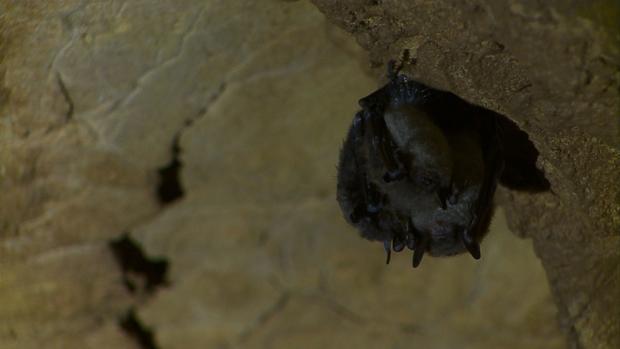February's Warmth Poses Threat To Bats
MINNEAPOLIS (WCCO) -- It's starting to feel more like winter around Minnesota, but it won't last.
The above-average temperatures are set to return, and it's confusing some of our local wildlife.
Animals are coming out of hibernation months and, for one species, it could be a big problem.
The Wildlife Rehabilitation Center of Minnesota has seen an uptick in an unexpected tenant in the last couple weeks.
"This season it's been 80 to 90 bats that we've taken in, most of them the big, brown bats," said WRCMN Executive Director Phil Jenni.
Bats normally would not be affected by the occasional warm day. But several days of above-average temperatures is changing the sleep pattern for bats and bringing them out of hibernation.
"They go downhill really fast because there's nothing for them to eat. They're insect eaters, bug eaters," Jenni said. "So there's nothing out there for them, and then people find them, often lethargic."
Veterinarian Leslie Reed would typically check two bats a day in February. That number has increased dramatically in the last few weeks.
"At this point, we're checking probably six to 10 a day," Reed said.
Most of her "patients" are thin and dehydrated, but some need a little extra attention. Reed checked in on a bat nursing its newborn bat pup Saturday morning.
"Any time a wild animal gives birth in captivity, it's a low prognosis for that baby because the mom's stressed being in captive environment," Reed said. "So far, it seems to be going well and she's had the pup a week now."
Once the bats are evaluated for overall health, staff will keep the animals awake for days, feeding them to rebuild their fat stores.
"What we hope then is that they'll go back to hibernation, and then in the late spring or when the bugs come back, we'll release them," Jenni said.
Bats play an important role in insect control during the summer months, so the WRCMN is asking people who find bats to bring them in for care.
Click here for information on how to safely capture the animal.




